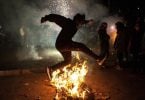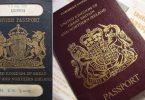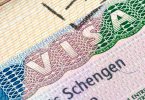Crime-fighters in the Caribbean are taking a bite out of crime in the region with the recent launching in Trinidad of Crime Stoppers International, the Caribbean’s “Most Wanted” website.
The website, which is the first of its kind in the region, allows police throughout the Caribbean to post photographs of suspects wanted in connection with crimes in Bermuda, Trinidad and Tobago and Latin America.
Lord Michael Ashcroft of Crime Stoppers UK said he believed the website will tremendously assist with crime fighting in the Caribbean, given its success in the United Kingdom and other parts of the world.
The launching of the Caribbean’s version of “Most Wanted” comes at a very appropriate time as crime in the region has escalated to the point where it has become a serious concern to all regional governments.
Trinidad and Tobago Prime Minister Patrick Manning in his recent opening address at a Conference on Regional Crime in St. Kitts, told delegates that “the heads of Caribbean governments, recognizing the challenges caused by violence, crime and public insecurity in the region have decided to make security a major priority in the Caribbean community.”
Prime Minister Manning is the CARICOM (Caribbean Community) head, who holds responsibility for crime in the region.
Part of the problem the prime minister said was that the Caribbean continues to be used as trans-shipment routes for illegal drugs.
Mr. Manning also acknowledged that the Caribbean needs collaboration among the security agencies of all countries and added, “I’m pleased that this cooperation is now happening at an unprecedented level amongs ourselves, involving the United States as well. It helps to make each nation more effective in dealing with this very big problem on our hands.”
Last year March, nine Caribbean countries signed a Memorandum of Understanding (MOU) with the US Bureau of Alcohol, Tobacco and Firearms and Explosives to help e-trace illegal firearms.
E-Trace is a paperless firearm submission system that is accessible through a secure connection to the World Wide Web. The analysis of firearms trace data is then used to assist in the identification of firearms trafficking patterns and geographic profiling for criminal hotspots and possible sources of illicit firearms.
The Caribbean signatories of the MOU are Anguilla, Antigua and Barbuda, Aruba, Barbados, Curacao, Dominica, Grenadines, St. Kitts and Nevis and St.Vincent and the Grenadines.






















